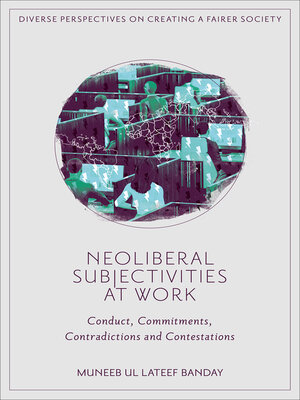Neoliberal Subjectivities at Work
ebook ∣ Conduct, Commitments, Contradictions and Contestations · Diverse Perspectives on Creating a Fairer Society
By Muneeb Ul Lateef Banday

Sign up to save your library
With an OverDrive account, you can save your favorite libraries for at-a-glance information about availability. Find out more about OverDrive accounts.
Find this title in Libby, the library reading app by OverDrive.



Search for a digital library with this title
Title found at these libraries:
| Library Name | Distance |
|---|---|
| Loading... |
Neoliberalism and the fourth industrial revolution are argued to be the dominant forces transforming work and employment relations in contemporary times. Using the Indian Information Technology (IT) industry as the empirical context, Neoliberal Subjectivities at Work develops a comprehensive conceptual and analytical framework for studying contemporary employment relations governed by techno-neoliberalism.
Examining how employers seek to produce employees as enterprising and technological subjects, how employees become or fail to become enterprising IT subjects and how unionized IT employees seek to contest neoliberalism through citizen-worker rights discourse, the author provides a compelling analysis of the governance and contestations of employee subjectivities. Situated in the extant debates on power, resistance and employment relations this book provides a unique account of theorizing and analyzing employees' lived experiences of neoliberalism in the Global South. Using the analytics of governmentality and intersectionality framework and studying data generated through documents, videos, and semi-structured interviews, Banday employs a post-structuralist lens to investigate how employment relations are problematized and the consequences on the employees' lives and resistance in contemporary workplaces.
With implications beyond India and the IT sector as neoliberalism and fourth industrial revolution discourses become mainstream forces governing workers, workplaces as well as policymaking, this is important reading for researchers interested in the sociology of work and organizational and management scholarship in relation to the globalized technological neoliberal capitalism.







